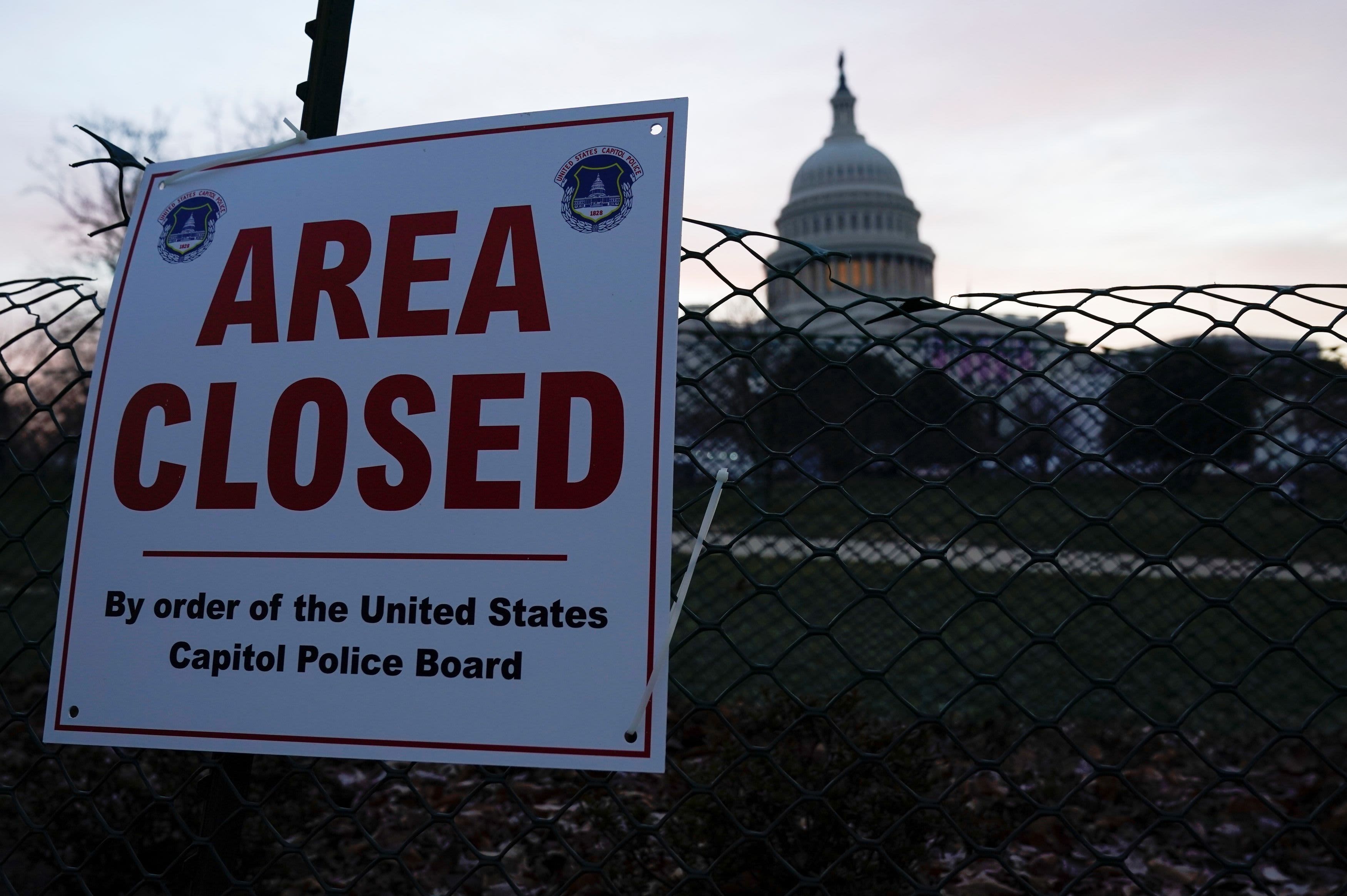
The Capitol is seen behind a fence and a sign, in Washington, U.S., January 15, 2021.
Joshua Roberts | Reuters
History tends to repeat itself, for better or worse.
On Wednesday, January 6th, 2021, the U.S Capitol Building was invaded by pro-Trump nationalists. Five people were killed in the chaos including a Capitol police officer. Since the insurrection, President Trump has become the first U.S. President to be impeached twice while federal agents continue to make arrests.
This was not the first time the capital was attacked either. It was famously burned down by British soldiers during the War of 1812. While political pundits pontificated how this dark day may impact the future of democracy, the markets kept chugging along, hitting new highs baffling some investors.
But according to CNBC contributor and CEO of Ritholtz Wealth Management Josh Brown, the market usually ignores political events, “The market looked at the action … It looked right through it like it wasn’t even there. But that is not out of character. That is what stocks have historically been able to do.”
Brown pointed to historical precedents that shocked a nation but did not shake investors: two months after 9/11, the markets had recovered to pre-9/11 highs. Two days after the assassination of President John F. Kennedy, the markets were higher.
“There really isn’t any signal when you are thinking about these horrific events. Why isn’t the stock market being sentimental about it? Because it just isn’t. It’s about interest rates and earnings and not even about the present but about the future,” Brown said.
“If you have been a buyer on other people’s fear it has worked time and time again,” he added.
More from Invest in You:
This may be a challenging time to stick to retirement savings goals in new year
Why you might want extra help preparing your taxes this year
The ultimate retirement planning guide for 2021
Jamie Catherwood, an associate at O’Shaughnessy Asset Management and author of the financial history blog Investor Amnesia, pointed out that markets have a long history of looking beyond the worst moments. “Markets recover because over the long run stocks continued to go up, but suffering through those declines in the meantime, I mean, the Panic of 1907 was brutal, but markets recovered.”
During the Panic of 1907 over the course of three-weeks in mid-October, the New York Stock Exchange fell almost 50% from its peak the previous year.
Catherwood said markets tend to react to events that affect companies’ earnings or revenue streams. When William McKinley, the 25th president, was assassinated, the market dropped 4%. But within two days of his death, the market had risen 4%, erasing the losses.
However, when President Theodore Roosevelt began his antitrust crusade against Standard Oil in the early 1900s, the markets took notice. The Dow Jones Industrial Average fell 8.7% in one day.
For long-term investors, Catherwood says making market moves based on even the gravest politicals events can be a hasty course of action. “You should speak to an actual financial advisor to figure out what’s right for you. But if you’re investing for, you know, decades, there’s no reason to not invest now, because you’re not going to touch it anyway. And so the ramifications of what’s going on now will be resolved many ways before you need to withdraw your money.”
SIGN UP: Money 101 is an 8-week learning course to financial freedom, delivered weekly to your inbox.
CHECK OUT: How a 28-year-old managed to retire early and earn $16,000 a month in passive income via Grow with Acorns+CNBC.
Disclosure: NBCUniversal and Comcast Ventures are investors in Acorns.




